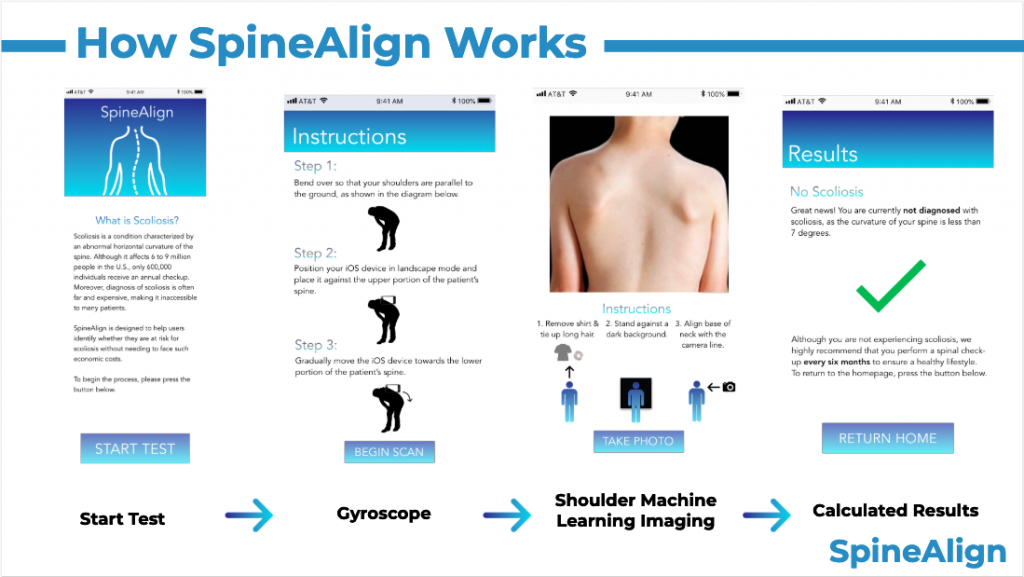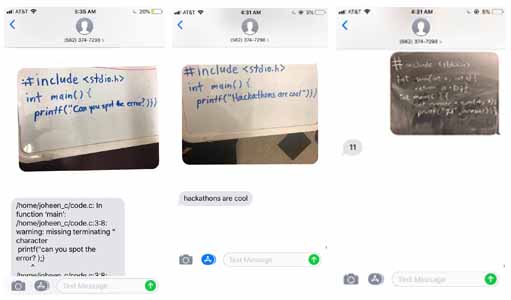Month: April 2019
The CS Distinguished Lecture Series Hosts Thought-Provoking Sessions
The Distinguished Lecture series brings computer scientists to Columbia to discuss current issues and research that is affecting their particular fields. This year, nine experts covered topics from deep learning, virtual reality, blockchains, algorithms, computing, and data science.
John Hennessy, from Stanford University, addressed the slower rate of performance growth for general processors and how he sees domain specific architectures may be the one attractive path for important classes of problems.
Below is the list of prominent faculty and industry researchers from across the country that gave talks and links to videos of their lectures.
- Deep Learning to Learn
Pieter Abbeel, UC Berkeley - Blockchains Untangled:
Public, Private, Smart Contracts, Applications, Issues
C. Mohan, IBM Almaden Research Center - Enabling Real Virtuality: Closing the Gap Between the Digital and the Physical
Daniel Wigdor, University of Toronto - Toward Theoretical Understanding of Deep Learning
Sanjeev Arora, Princeton/IAS - The End of the Road for General Purpose Processors and the Future of Computing
John Hennessy, Stanford University - Sketching Algorithms
Jelani Nelson, Harvard - Exciting Times for Multiparty Computations — Over 35 Years in the Making
Tal Rabin, IBM - Learning in Games
Éva Tardos, Cornell University - Causal Data Science: A General Framework for Data Fusion and Causal Inference
Elias Bareinboim, Purdue University
Eleni Drinea Recognized for Excellence in Teaching
Drinea, a lecturer in discipline of computer science, will receive this year’s Distinguished Faculty Teaching Award, an honor given annually by the Columbia Engineering Alumni Association. She’ll receive the award on Class Day, the May 20 commencement for Columbia Engineering graduates.
Startup Ravn, Led By Jake Bullock (GS ’17) Is TechCrunch Top Pick From Y Combinator Winter 2019 Batch
Looking around corners is one of the most dangerous parts of war for infantry. Ravn builds heads-up displays that let soldiers and law enforcement see around corners thanks to cameras on their gun, drones or elsewhere.
DevFest Returns For A Week Of Learning And Coding
Hundreds joined DevFest for a week of workshops that ended with an 18-hour hackathon. In its ninth year, the event gathered technologists from the New York City area. The hackathon had a record 26 projects from teams across the Columbia community.
The iOs app SpineAlign took first place. The team, composed of first-year students, wanted to help people determine if they have scoliosis. The app hopes to be a resource that can help reduce the cost of diagnosis and increase accessibility for patients.

Second place went to PicCode, an app that can help verify code by simply taking a picture. Whiteboarding, coding by hand, and reading code in the form of physical text (via textbook or otherwise) is a common practice among programmers and CS students. PicCode enables users to take a picture of code and receive a return text that either contains the output of the code or any errors in the code.

The ethos of the hackathon is you can go from zero to a working product in a very short amount of time, shared Christopher Thomas (GS ’19), the lead organizer from the Application Development Initiative (ADI). He continued, “I was a huge fan of EZPZ, an app that helps refugees fill out paperwork, they knocked it out of the park.”
Thomas and the ADI team started planning the event a year in advance to put together the four days of workshops, panels, and talks from industry professionals. “We made sure DevFest is a place where people can meet, learn together, and pick up coding skills,” he said.
List of winners
First place
Spine Align – Havi Nguyen, Annie Sui, Luvena Huo, James Wang
Second place
PicCode – Alexander Wang, Ursula Ott, Joheen Chakraborty, Michael Jan
Third place
Teach & Reach – Wu Shaun Khoo, Santoshi Ganesan
Bloomberg
Award of Excellence
EZPZ – Tomer Aharoni, Alon Ezer, Jonathan Bofman, Eden Dolev
Best
Beginner Hack
Delta – Kate Majidzadeh, Sofía Sánchez-Zárate, Benjamin Snyder, Carl Dobrovic
Best
Hack for Social Good
WeServe – Christopher Kang, Katharyn Fatehi, Naviya Makhija
Best
Financial Hack
Juvo – Rohan Macherla, Jack Shi, William Tong, Justing Won
Best
Hack for Sustainability
Hungry Hippos – Samantha Figueredo, Ailene Torres, Fernando Sanchez, Kimberly Mangual
Best
Use of Facebook Mission
Uberlytics – Kanishk Vashisht, Rahul Kataria, Sambhav Anand
Best
Educational Hack
League of Learners – Naledi Kekana, Nelson Lai, Yvette Zhang, Kailing Chen
Best Use of Google Cloud Platform
Sumy – William Zheng, Stan Liao, Sian Lee Kitt
Best
Use of Twilio API
LionDine – Jake Fisher, Paul Cassoulat, Sergio Llamas, Bryce Monier

